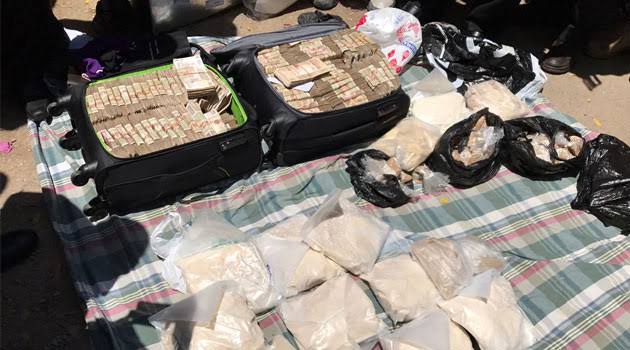NAIROBI, Kenya, Nov 22- Parliament is considering new tough proposals that will see drug traffickers pay fines of up to Sh50 million, in what could be a turning point in the fight against narcotics in the country.
There are no such tough conditions in the current laws, which often help the traffickers to get lenient sentences and fines.
The proposals, contained in the Narcotics, Drugs and psychotropic Substances (Control) amendment Bill, 2020 also target law enforcement officers who collude with drug traffickers to defeat the cause of justice, manufacturers of substance used as raw material for drugs and users of illegal substances.
For instance, on drug traffickers, the proposed law sets down penalties commensurate with quantities nabbed.
People found in possession of more than 101 gm of the narcotics will receive the harshest penalties (Sh50million and life imprisonment), while those in possession of 51-100gm risking fines of not less than Sh30million and jail terms of not less than 20 years.
According to the bill, those found in possession of between 0.1-50gm will be subjected to fines of not less than Sh20 million, jail terms of not less than 15 years or both.
The current law proposes a fine of Sh1 million, or three times the market value of the drug or whichever is greater.
Under the proposed law, police officers, investigators and prevention officers who assist drug traffickers carry out their trade will be liable to fines of not less than Sh20million, imprisonment of terms of not less than 20 years or both upon conviction.
“The principal object of the bill is to amend the Narcotics, Drugs and Psychotropic Substances (Control) Act in order to enhance penalties to the offense in possession and trafficking in narcotics and psychotropic substances,” says part of the bill sponsored by Kiambaa lawmaker, Paul Koinange who is also chair of the National Assembly Administration and National Security committee.
The bill also sets tough penalties for manufacturers of raw materials for drugs and those who transport such materials.
They will face fines of not less than Sh50 million and imprisonment for terms not less than 20 years.
Outlawed materials material include Ephedrine, ergometrine, ergotamine, Lysergicacid, phenyl-2 propanone, pseudoephedrine, acetic anyhydride, acetone, anthranilic acid, ethyl ether, phenylacetic acid and piperidine.
The penalties will also apply to those in possession of salts related to the raw materials.
Those found smoking narcotic substances such as bhang will be fined Sh250,000, while those found in possession of equipment used for production of narcotics substances or permits their premises to be used for production of such substance will be risk fines of not less than Sh20 million and imprisonment of not less than 10 years.
If the bill becomes law, it will strike a blow in the fight against drug trafficking in the region that has been identified as a major trafficking hub mainly because of its porous borders, weak laws and corruption.
Kenya has long been singled out as a key transit route for drugs, most of which originate from South America.
“A law enforcement officer who aids or abets any offence under his Act, including through concealing the commission of any offence or colluding with any person suspected of committing an offence under this Act commits an offence and shall be liable upon conviction to a fine of not less than twenty million shillings or imprisonment for a term of not less than twenty years, or both.”
The fines will apply to people who reside outside the country but conspire with residents to commit drug related crimes.
The bill also requires the Director of Public Prosecutions (DPP) to seek information from foreign governments on drug suspects if there is cause to believe that that such information will assists in nailing drug suspects.
“The DPP shall request for information, evidence, and particulars where any person, including a foreign government, state or organisation or entity alleges or has information that any person in Kenya has committed an offence under this act, and shall upon receiving such information, evidence and particulars carry out the same in accordance with the law.”
It comes at a time when the government revealed there is an increasing trend of trafficking of bhang from Ethiopia to Kenya which has been linked to terrorism. Officials say terrorists are now using the proceeds to fund their activities.
Want to send us a story? Contact Shahidi News Tel: +254115512797 (Mobile & WhatsApp)


